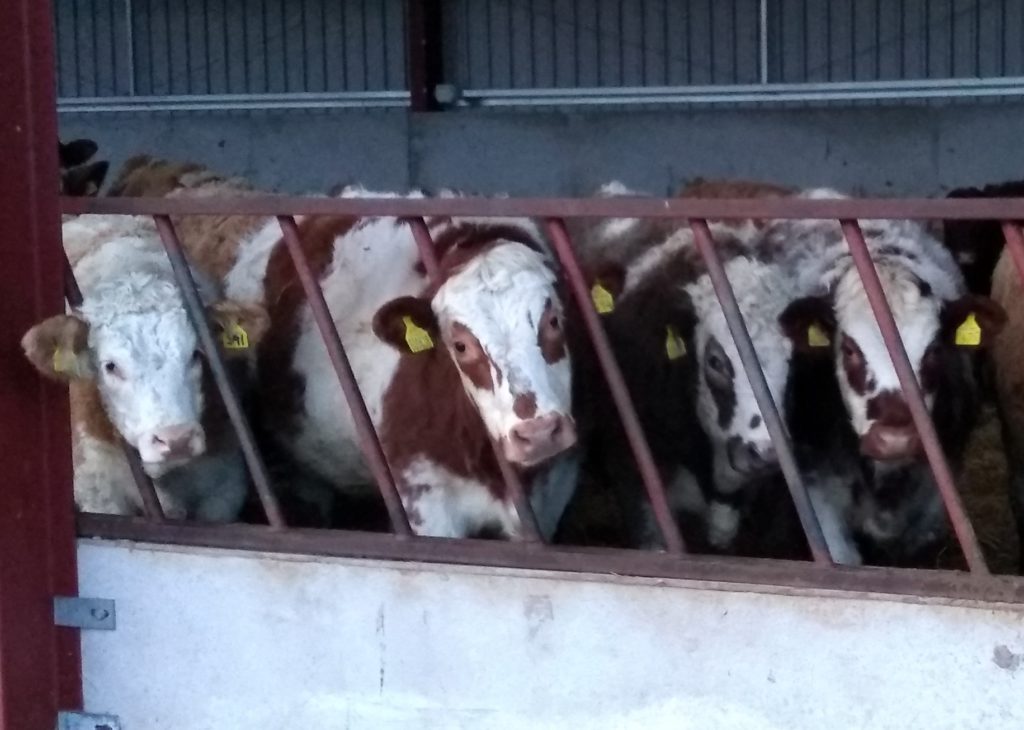Last Minute Winter Suckler Checks
10 January 2019Monitor body condition
Thin cows are more likely to have a slower calving, poorer quality colostrum, start cycling later, and a longer calving interval. The knock on detrimental impact on in-year calf weight gain, cheap calf weight gain at grass, weaning weights, and resulting barren rates in the following year(s). Equally, cow fatness can also make the physical process of calving difficult and they tend to have lower fertility. Different types of cow mean they do not all need to be in the same level of condition but moderate body condition is a best starting point.
Analyse forage
Forages may be very different this year and should be analysed. Feeding the same as last year could easily result in significant weight gain, particularly with first or single cuts which have tended to analyse well. Higher weight gain from forage is a good thing for weaned calves but not necessarily dry spring calving suckler cows – see above.
Pregnancy check
Identification of open-cows (and projected calving dates) helps learning for the future, and before it gets too busy with calving and other spring work. Separating out and culling barren cows also makes best use of feed and helps plan the most opportune time to sell.
Reduce spoilage and waste
As winter progresses, those with two clamps or a single large clamp of silage, for two cuts, will gradually be feeding a larger portion of first cut. This is likely to be much drier and different in nutritional value to later cuts – see comment above on forage analysis. High dry matter silages will be more inclined to spoil, therefore, it is essential to keep the silage face tidy and move across it as quickly as possible. Do not feed mouldy silage to in-calf cows.
IF NOT DONE ALREADY it is essential to monitor this now and make any necessary adjustments to rations and management well in advance of calving time.
Written by Robert Logan, for more information contact Robert.Ramsay@sac.co.uk
Sign up to the FAS newsletter
Receive updates on news, events and publications from Scotland’s Farm Advisory Service

